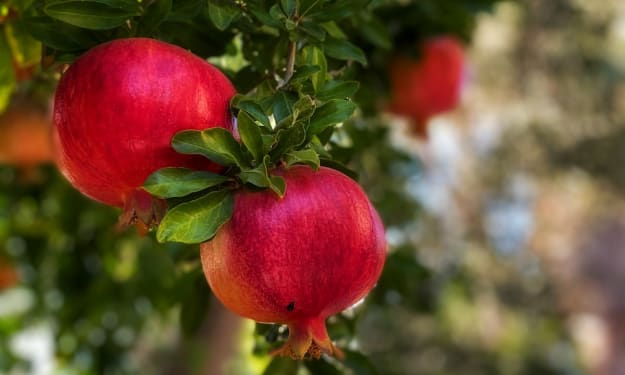
1: What is Indian Gooseberry?
Indian gooseberry, also known as Amla, is a small, green, round fruit that is native to India and other parts of Southeast Asia. It has been used for centuries in Ayurvedic medicine and is known for its numerous health benefits.
2: Nutritional Benefits of Indian Gooseberry
Indian gooseberry is rich in vitamins and minerals, including vitamin C, vitamin A, calcium, iron, and phosphorus. It is also a good source of antioxidants, such as flavonoids and carotenoids, which help protect the body against oxidative stress and damage.
3: Health Benefits of Indian Gooseberry
Boosts Immune System: The high vitamin C content in Indian gooseberry helps boost the immune system by increasing the production of white blood cells and strengthening the body's defenses against infections and diseases.
Improves Digestive Health: Indian gooseberry is rich in fiber, which promotes healthy digestion by regulating bowel movements, preventing constipation, and reducing inflammation in the digestive tract.
Promotes Heart Health: Indian gooseberry contains antioxidants that help reduce the risk of heart disease by lowering cholesterol levels, preventing plaque buildup in the arteries, and improving blood circulation.
Enhances Skin Health: The antioxidants and vitamin C in Indian gooseberry help protect the skin from damage caused by free radicals and UV radiation. It also promotes collagen production, which helps reduce wrinkles and fine lines.
Regulates Blood Sugar Levels: Indian gooseberry has been shown to help regulate blood sugar levels by stimulating the production of insulin and reducing insulin resistance in the body.
Reduces Inflammation: Indian gooseberry has anti-inflammatory properties that help reduce inflammation in the body, which can contribute to a wide range of chronic diseases, including arthritis, asthma, and cancer.
Promotes Hair Growth: Indian gooseberry is known for its ability to promote hair growth and prevent hair loss. It contains antioxidants and vitamin C, which help nourish the hair follicles and promote healthy hair growth.
4: How to Incorporate Indian Gooseberry into Your Diet
Indian gooseberry can be consumed in a variety of ways, including raw, cooked, or in supplement form. Here are some ideas for incorporating Indian gooseberry into your diet:
Raw: Simply wash the fruit and eat it raw. Indian gooseberry has a sour taste, so you may want to add a pinch of salt or sugar to enhance the flavor.
Cooked: Indian gooseberry can be cooked in a variety of dishes, such as chutneys, pickles, and curries.
Juice: Indian gooseberry juice is a popular way to consume the fruit. Simply blend the fruit with water and strain the juice.
Supplements: Indian gooseberry supplements are available in capsule or powder form and can be added to smoothies, teas, or other beverages.
5: Precautions and Side Effects
While Indian gooseberry is generally safe for most people, there are a few precautions and side effects to be aware of:
Allergic Reactions: Some people may be allergic to Indian gooseberry and may experience symptoms such as itching, swelling, and difficulty breathing.
Interactions with Medications: Indian gooseberry may interact with certain medications, such as blood thinners, diabetes medications, and chemotherapy drugs. If you are taking any medications, consult with your doctor before consuming Indian gooseberry.
Gastrointestinal Upset: In some cases, consuming large amounts of Indian gooseberry may cause gastrointestinal upset, such as diarrhea or nausea.
6: Conclusion
Indian gooseberry is a powerful fruit that offers numerous health benefits and can be easily incorporated into your diet. From boosting the immune system to promoting hair growth, this fruit has a wide range of benefits for overall health and well-being.
If you are looking to add Indian gooseberry to your diet, start by incorporating it in small amounts and gradually increasing your intake. Be sure to talk to your doctor if you have any concerns or if you are taking any medications.
In conclusion, Indian gooseberry is a superfood that offers a variety of health benefits. It is rich in nutrients, antioxidants, and fiber, making it an excellent addition to any diet. Whether consumed raw, cooked, or in supplement form, incorporating Indian gooseberry into your daily routine can help improve your overall health and well-being.
Additionally, Indian gooseberry is a great option for individuals looking to incorporate more plant-based foods into their diet. It is a versatile fruit that can be added to a wide range of dishes, making it an easy way to increase your fruit and vegetable intake.
One of the most significant benefits of Indian gooseberry is its high vitamin C content. Vitamin C is a powerful antioxidant that helps protect the body against free radical damage and oxidative stress. It also plays a crucial role in boosting the immune system by stimulating the production of white blood cells. Consuming Indian gooseberry regularly can help prevent illnesses, such as the common cold and flu.
Another benefit of Indian gooseberry is its ability to promote heart health. The antioxidants in Indian gooseberry help lower cholesterol levels, reduce plaque buildup in the arteries, and improve blood circulation. This, in turn, can help reduce the risk of heart disease and other cardiovascular conditions.
Indian gooseberry is also great for promoting healthy skin and hair. The antioxidants and vitamin C in this fruit help protect the skin from damage caused by free radicals and UV radiation. It also promotes collagen production, which can help reduce the appearance of wrinkles and fine lines. Additionally, Indian gooseberry is known for its ability to promote hair growth and prevent hair loss.
It's worth noting that while Indian gooseberry is generally safe for most people, it may cause gastrointestinal upset in some cases, such as diarrhea or nausea. Additionally, individuals who are allergic to the fruit may experience itching, swelling, or difficulty breathing. It's important to talk to your doctor before consuming Indian gooseberry, especially if you have any concerns or are taking any medications.
Incorporating Indian gooseberry into your diet is easy and can be done in a variety of ways. You can consume it raw, cooked, or in supplement form. Indian gooseberry can be used in a wide range of dishes, including chutneys, pickles, and curries. You can also make juice by blending the fruit with water and straining the juice.
From boosting the immune system to promoting healthy skin and hair, this fruit is a powerhouse of nutrients and antioxidants. Whether you're looking to improve your overall health or prevent chronic illnesses, Indian gooseberry is an excellent addition to any diet. Remember to start with small amounts and talk to your doctor if you have any concerns.






Comments
There are no comments for this story
Be the first to respond and start the conversation.